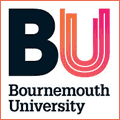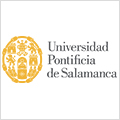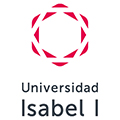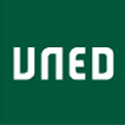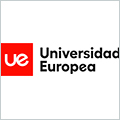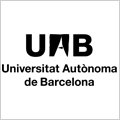Bachelor in History - Grado en Historia
-
Imparte:
-
Modalidad:Presencial
-
Precio:Unlimited number of Scholarships available for next academic year
UK/ROI/Channel Islands: £9,535 per year
International: £19,635 per year -
Comienzo:Septiembre 2026
-
Lugar:Royal London House, Christchurch Road
Dorset (Bournemouth) BH1 3LT
Reino Unido -
Duración:3 Años
-
Titulación:BA (Hons) History
Join our unique History degree, where we´ll debate and question Modern, Public, and Media History. You´ll develop practical and professional skills, equipping you for a range of exciting careers.
104 to 120 UCAS tariff points (A-level grades BCC to BBB) including a minimum of 2 A-levels or equivalent qualifications. We also accept a wide range of vocational qualifications including BTEC Extended Diploma (grade DMM) and T Levels (Merit).
International entry requirements:
If English is not your first language you´ll need IELTS (Academic) 6.0 with a minimum 5.5 in each component, or equivalent.
Bournemouth University is ranked in the top 10 universities for History in the Guardian University Guide 2024. 95% of our students are in work or further study within 15 months of finishing their course
You’ll delve into a rich array of sources such as newspapers, online sites, sound recordings, television, and film, to explore a broad spectrum of fascinating topics. This dynamic approach, combined with traditional historical study, will bring history to life in vivid and unexpected ways
You’ll be assessed through different forms including exhibitions, posters, websites, podcasts, blogs, and even a mock peace conference, in addition to traditional essays and exams
Engage with public history working with a range of outside agencies including museums, archives and heritage organisations
Develop a proposal for a public history event, working with organisations such as Bournemouth Blind Society, BCP council, National Motor Museum and the Museum of East Dorset
Gain valuable experience during a four week or optional 30-week placement. Work with organisations such as Dorset History Centre, Huntley Film Archives, Highcliffe Castle, RNLI and ABA Antiques.
YEAR 1
Historical skills: You will be introduced to the nature of history as a discipline, the different methods and approaches historians use to study the past, and the complexities of history as ‘the past’ and history as ‘interpretation’. You will learn what historiography is and how to identify, read, and analyse secondary evidence and will develop your written and verbal communication skills by reflecting on how to organise and present ideas in an appropriate academic manner, how to formulate arguments, and how to reference sources using footnotes and bibliographies.
Historical Evidence: You will learn how to analyse a range of primary sources, including newspapers, letters, diaries, photographs, film, radio, and material culture and will develop your ability to evaluate the strengths and weaknesses of different types of historical evidence, and to interpret primary sources in relation to historiographical issues and debates found within the secondary literature. You will also learn how to conduct independent and group-based research projects using archival collections and digital resources and will develop your ability to present research findings in an appropriate academic manner, including referencing primary sources and archival collections in footnotes and bibliographies.
The Making of Modern Britain, 1750-1945: You will explore new interpretations and critical approaches to the study of modern British history. Broader themes and historical debates will also be examined. You will be encouraged to place particular episodes or case studies in their historical context, and by doing so, to make links and further connections to wider historical issues and debates.
Media Histories: This unit aims to introduce you to media and communication histories and key developments from the printing press to the internet. You will develop an awareness of both the technological developments that transformed the media but also recent developments in media history historiography, encouraging you to employ both a national and transnational perspective.
History in the Public World: The focus of this unit is the creation and interpretation of history in the public sphere, exploring how history is disseminated outside the confines of academia.
European Histories 1800-2000: This unit will introduce you to European political, social, economic, and cultural history and considers a range of historical developments and contexts within Europe: from revolution, national unification, war and peace, through the Cold War, to the development of the contemporary European Union.
YEAR 2
Interpreting History: You will be introduced to the diversity of specialisms within the discipline such as family history, women’s history, gender history, black history, and ‘history from below,’ and to the ways this history is presented.
Community Histories: This unit builds on your understanding of local history and ‘people’s history’, focussing on the ways in which individuals have discovered recorded and presented the history of the locality or community in which they have lived and worked. See examples of student work.
Post-War Britain, 1945-2000: You will be introduced primarily to a social, political and cultural history of post-war Britain. From the launch of the Welfare State in the 1940s to the so called ‘Cool Britannia’ of the 1990s. How have the lives of ordinary men and women changed? How has the meaning of British identity or what it meant to be British changed? You will have the opportunity to specialise and hone in on your research skills and ability to design a small research project.
The Long American Century: This unit will chart American history from post-Civil War Reconstruction through the rise of the United States in the late nineteenth century, through the waves of reform and reaction in the twentieth century as the US took a larger place on the world stage. You will be introduced to multiple perspectives on the American past, covering topics ranging from race relations and the Civil Rights movement, to American foreign relations and the role of the American constitutional system in shaping American culture and institutions.
Option units (choose two)
Cold War Culture
Youth Culture and Politics: 1945 to the Present
Strikes, Riots and Blackouts, Britain in the 1970s
Women and Equal Rights, 1850-2000
Before the Deluge: Europe and the World on the Eve of the First World War
The Twenty Years’ Truce: Global Culture and Politics in the Interwar Era
Migration Histories
History of Political Thought (Politics)
The Changing Coastal Resort
FINAL YEAR
The History Dissertation: You´ll carry out a significant piece of academic work on a topic of your choice (in consultation with the university). This takes the form of a 10,000-word dissertation which develops and demonstrates critical, analytical and research skills.
The History Graduate Project: Working in small teams, you´ll work on a proposal for a public history event in collaboration with a heritage/history-focussed external organisation. This will culminate in both a group presentation and an individual evaluation.
Option units (choose two)
Woman’s Hour: 60 Years of Social Change?
History and Political Struggle: International Perspectives through Film
The Suez Crisis
Cabinets, Conventions and Crises: International responses to Conflict and Security, 1856-1939
No Place Like Home: Housing, Homes and Homelessness since 1900
Permissive Britain? Sexual Revolution, Reaction and Remembering, 1945-1990
The exceptional analytical and communication skills you’ll develop as a history graduate will arm you with a wide range of qualities employers desire.
Many of our graduates go on to find work in education, marketing, local and central government, tourism, research, publishing and broadcasting, as well as working within museums, historical attractions and the arts sector.
